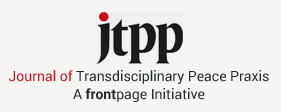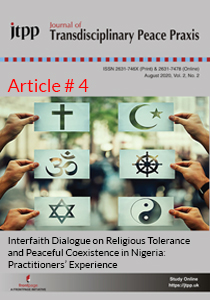Description
Interfaith Dialogue on Religious Tolerance and Peaceful Coexistence in Nigeria: Practitioners’ Experience
Bosede Awodola (Associate Professor of Research, Institute for Peace and Conflict Resolution [IPCR], Nigeria) & Olalekan A Babatunde (Fellow, Institute for Peace and Conflict Resolution [IPCR], Nigeria)
Intolerance has been one of the major problems of nation-building in Nigeria. It stems from misunderstanding, pretence and sharp ideologies. The April 2020 violent resistance of some youths to the COVID-19 prevention measures by the government exemplified the extent of insensitivity and sectarianism.
In a bid to mitigate its threat to peace, security and development in the northern region of the country and the Sahel, series of interfaith dialogues have been held since 2013 to reconcile strained relations, while promoting understanding, trust, love and forgiveness among adherents of both Christianity and Islam and other communities.
The facilitation experience by the Institute for Peace and Conflict Resolution, Abuja, Nigeria is a disparate aggregate of amazement, deception and disappointment. Drawing from this mixed experience, that includes observation, participation and elicitation, the account provides deeper insight into the intractable disposition of religious violence and extremism in the northern part of the country.
Also, due to age-long traditions and influence of certain radical actors, it reveals the perverse issues that seem to make dialogue an ineffective tool in addressing religious intolerance and extremism in Nigeria. This further explains why as soon as participants—individuals and communities—indicate a promising change in behaviour and commitment to communiqués issued, the region tends to relapse into status quo.
It is suggested that religious harmony and peaceful coexistence will be fostered if stakeholders and actors complement intra and interfaith dialogue with education, as this combined approach will create ownership and self-consciousness. It is then that the region will forge a shared vision towards ending fear and violence.





